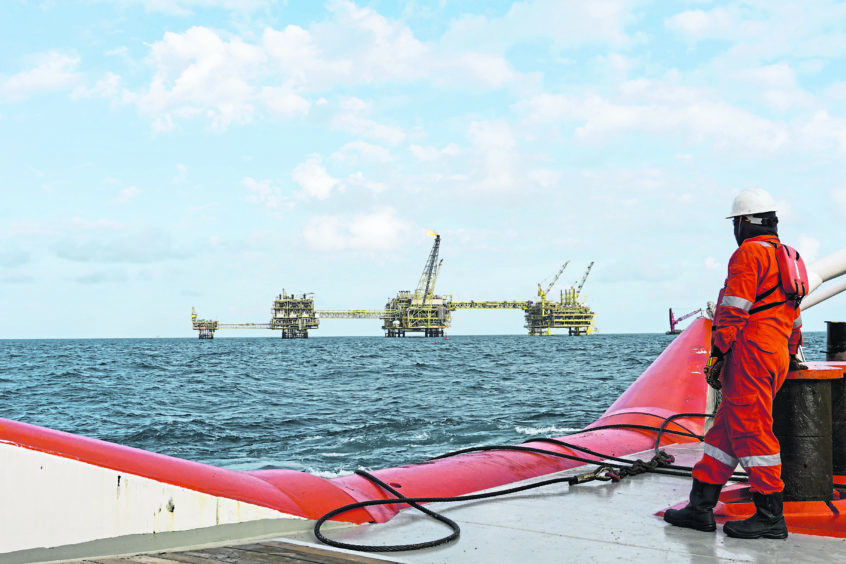
There has been a lot of discussion in the media recently about the prospects that the “great plague of 2020” will inevitably lead to fundamental changes in both our economy and our society.
In an energy context there is growing pressure to introduce the concept of a “green deal”. This relates to the belief that by moving to a “greener” economy, which will require the manufacture of net-zero technologies and the improvement of our housing stock’s energy performance, we can create considerably more high-value, well paid and satisfying jobs.
Green deal advocates also point out the export potential this would create and the positive impact on climate change, the environment and our overall health.
There is nothing here I could possibly disagree with. After all, increasing our involvement in the net-zero supply chain is something I have been hankering after for an exceedingly long time, albeit to little avail.
When I encounter proposals like this, I’m reminded of a graph produced by the Office for National Statistics, which shows clearly that in the last 40 years the export of services has soared while the export of goods has pretty much collapsed due to huge shrinkage in manufacturing capacity.
This situation has been of real concern during the Covid-19 outbreak because it has led to a lack of availability of everything from PPE for medical staff and carers to the highly sophisticated ventilators used to keep patients alive. The UK’s lack of advanced manufacturing companies was cited as one of the main problems here.
One of the things I have noticed is that little if any of the critical hardware used in hospitals is made in the UK, let alone Scotland.
I am reminded that despite Aberdeen University having developed the world’s first practical MRI machine, it was impossible to build here due to lack of funding.
That was an appalling indictment of the economic priorities of our financial sector and I am afraid it is an issue we still need to resolve.
No doubt then that one of the major lessons that should be learned from the great plague is that our dependence on overseas supply chains must change. There are obvious benefits to increasing indigenous manufacturing, not least of which is that in some sectors being able to make our own stuff could mean the difference between life and death.
This is not something I consider particularly radical and, yet, I think to rebuild our economy after the great plague we are going to need to be very radical in how we change current economic ideology.
I also believe that we will have to change our priorities and concentrate effort on sectors that have genuine growth potential, benefit society and the environment and move away from sectors that have proven to be not beneficial to more than a small minority or are in decline anyway.
So I’m thinking of net-zero energy technologies, health, advanced agriculture, clean transport and improved telecoms as some examples of what where we need to put in effort, whereas fossil fuels, mining, property development, in its current form, and “exotic” financial activities are examples of what we need to shrink, reshape or allow to fail.
To achieve anything even close to a green deal, we’ll need to do things such as reforming the financial sector to ensure it works for us and not just itself and shareholders.
Another sector ripe for reform is the university system. Some institutions are modelling between a 50% and 100% drop in international students. It is time to consider ways of making them more effective, perhaps even shutting some, in order to form a Scottish version of the Massachusetts Institute of Technology I have always wanted.
Eleven years ago in my column I wrote, “it may be that one of the things we will need to do as part of this new energy era is to dramatically improve the broadband system” to make remote working more practical.
I had no idea then that in fact this would become a necessity during the plague lockdown to enable home working but I do wonder, now that people have got used to the idea, if it could become more the norm. That said, it still needs improving.
It has also contributed to record low oil prices by cutting travel, thus helping achieve that shift in sector dominance I referred to above.
Economists are saying economic growth will be effectively non-existent this year and with Brexit coming into play will probably be flat, if not negative, in 2021.
We have the chance to do things differently in Scotland now. Whether we will or not is a question of courage and confidence in our own abilities. It is – to coin a well-worn phrase – a once-in-a-generation opportunity which I think we ignore at our economic, industrial and social peril.
Dick Winchester is a member of the Scottish Government’s energy advisory board
Recommended for you
